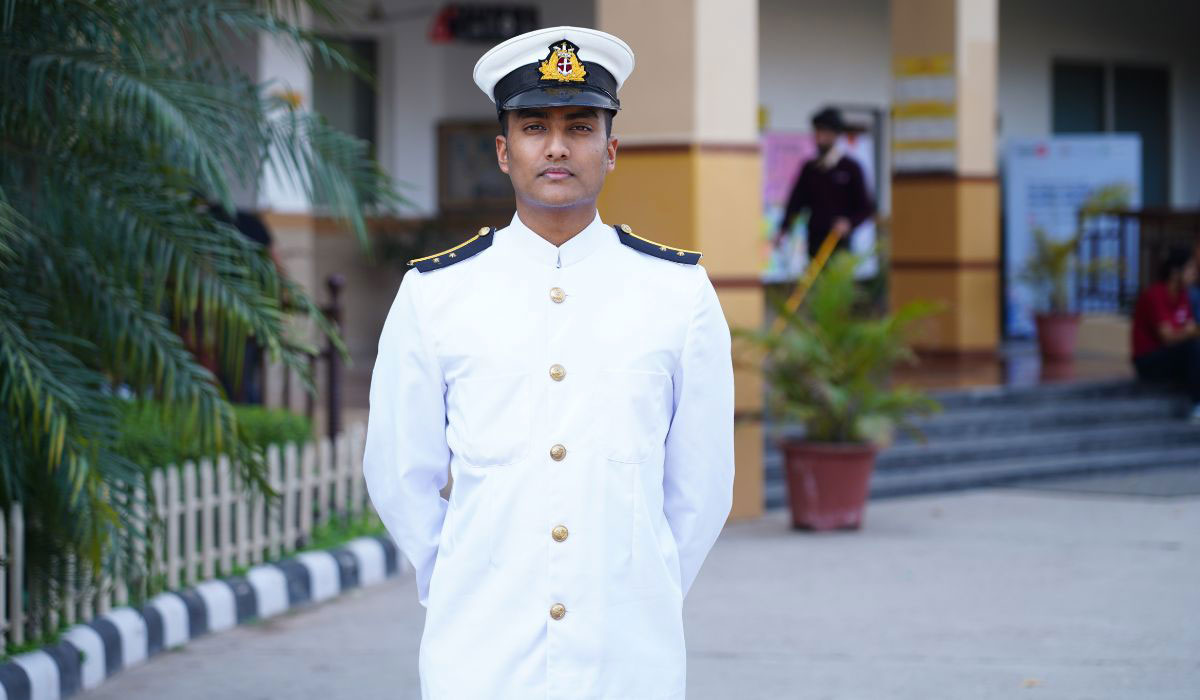The maritime industry is an important component of global trade, transporting most of the world’s goods. It is a diverse sector, including a wide range of jobs and professions, including shipbuilding, seafaring, logistics, port operations, and marine engineering.
What’s more, the maritime industry is important to international trade, and as such, the industry is likely to benefit from growth in global trade. Driven by factors such as technological advancements, environmental regulations, infrastructure investments, and growth in global trade, the maritime industry is poised for considerable growth in the next decade.
The industry is also likely to continue to play a critical role in global trade and remain an important source of employment and economic activity. With an increasing demand for Maritime services, the industry has become ripe with opportunities for career growth and development.
What Are The Different Career Options In The Maritime Industry?
Career opportunities in the global maritime industry offer a diverse range of paths that equip mariners with the education, training, and experience necessary for a lifetime filled with rewarding challenges. Whether at sea or ashore, choosing to pursue a career in this industry opens up a wealth of opportunities for you.
1. Deck Cadet
A Deck cadet is responsible for assisting the ship captain and officer in many tasks onboard, including navigational duties, maintenance of deck equipment, and ensuring the safety of the vessel. They also support cargo operations, life-saving drills, and watchkeeping. These professionals learn practical skills and gain knowledge about maritime laws, regulations, and procedures. They are responsible for ensuring smooth operations on the ship and maintaining a safe and efficient working environment.
2. Third Officer/Second Officer
The second officer takes specific responsibility for the role of navigation, the upkeep of charts, and maintaining software. They are responsible for overseeing navigation and radio equipment, undertaking bridge watches at sea, and may also be the vessel’s designated security, safety, and medical officer. The first post-certification appointment is for a former officer cadet, and the third officer undertakes bridge watches and understudies the second officer.
3. Chief Officer
The second officer in command, or the Chief Officer, is responsible for all deck operations, including cargo storage and handling, deck maintenance, and deck supplies. The Chief Officer is also in charge of the second and third officers and other deckhands who are responsible for the security of the vessel and environmental awareness.
4. Captain
A captain is in command of the vessel. Captains possess extensive experience and qualifications to ensure the safety of crew, passengers, and cargo, as they bear full responsibility. They are responsible for dealing with authorities on health, safety, security, and environmental awareness.
5. Port Manager
The role of a Port Manager involves the management of operations and logistics at a port. This role demands a thorough knowledge of various ship types, the specific cargo managed, and pertinent port rules and regulations.
6. Chartering/Brokering Manager
This job involves strategically managing trading decisions, handling cargo operations, and communicating effectively with various trading organizations. It also requires communication skills and knowledge of international trade regulations and maritime agreements between many nations.
7. Operations Manager
A Shipping or Operations Manager in a logistics company oversees the handling and transport of cargo and goods between ports. This position requires detailed knowledge of docking policies, management strategies, and easy communication skills.
8. Yard Manager
A Yard Manager oversees dockyard operations, requiring physical agility, strong communication skills, patience, and knowledge of docking policies and shipping components.
Study B.Sc In Nautical Science For A Career In the Marine Industry
B.Sc in Nautical Science is a program that centres around turning students into successful shipboard officers with a unique approach to offering a curriculum that can help build a strong knowledge base. Students in this program are trained in essential shipboard skills, including discipline, team spirit, and a success-oriented attitude.
Students are required to complete an internship and industrial training, receiving experience certificates from different ports upon completion. Pursuing this program at Chitkara University can help you become a successful maritime professional.
Program Highlights Of B.Sc In Nautical Science
The B.Sc in Nautical Science adheres to DG Shipping’s curriculum, aligning with the International Maritime Organization’s STCW code. The curriculum emphasizes academic knowledge and hands-on training, preparing trainees to become Junior Deck Officers on merchant ships.
This study program enables students to travel globally, collaborate with international organizations, and explore advanced technologies, making ship navigation an exciting career.
- Transform Your Career: After the completion of the assigned periods on the ship and passing competency examinations carried out by the Directorate General of Shipping, Government of India, the Junior Officer can climb up the hierarchy level through the ranks and eventually become eligible to be posted as the Captain on a merchant ship. Exposure to a Merchant Navy career helps a person grow in all aspects and gives a broader perspective on life itself.
- In-Demand Skills: The Merchant Navy career combines variety in a single domain. During the journey of this career, one gains adaptability, awareness, and professionalism while travelling the globe. Serving as an officer on a merchant ship cultivates strong communication skills, extreme resourcefulness, and a profound sense of discipline.
- Less Study More Work: The Merchant Navy is a lucrative and adventurous profession that demands a great deal of hard work and dedication. The intensive training in the Merchant Navy equips Deck Officers with expertise, enabling them to work diligently over the years. Unexpected situations and emergencies provide valuable knowledge and experience in handling them, keeping one on their toes continuously.
Pursuing the program of B.Sc in Nautical Science deals with navigation, cargo operations, the maintenance of merchant navy ships, and all legal and commercial matters committed to the shipping business.
Also, read this blog post: Maritime Industry and Globalisation: Two Sides of the Same Coin
If you wish to build a career in the Maritime industry then pursuing a program such as B.Sc in Nautical Science from Chitkara University can help you become successful. Enrol in a program today and take the first step towards becoming successful in the Maritime industry.






